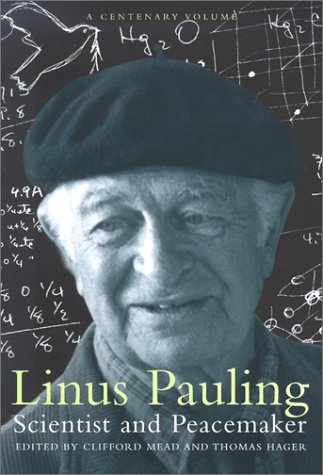World Scientific Series in 20th Century Chemistry
1 primary work • 2 total works
Book 10
A prodigy who became the youngest person elected to the National Academy of Sciences, Pauling was known for being outspoken and for leaping over scientific boundaries -- from physics to chemistry to biology to medical research. He wrote The Nature of the Chemical Bond, one of the most cited sources in scientific history, and won the Nobel Prize in Chemistry in 1954. He risked his reputation during the McCarthy years as a vocal opponent of Cold War policies and nuclear proliferation. As a result, he was vilified by the press, investigated by the FBI, and awarded the 1962 Nobel Peace Prize.
Pauling's larger-than-life personality was marked by what appear to be contradictions. Some observers found Pauling arrogant; many others loved him for his humor, humanity, and warmth. Observers likened him to the Pope, to a fascist, a wizard, and a king. He was a write-in candidate for governor of California. He was listed among the twenty greatest scientists of all time. He was listed as a subversive. He was called a threat. He was a complex individual.
To mark the 100th anniversary of Linus Pauling's birth in February 2001, two experts on his life and legacy have created this remarkable volume. Included is a wide variety of original material by Pauling -- much of it never before published -- as well as contributions from his contemporaries and students, and dozens of illustrations selected from the official Pauling Papers, including photographs, drawings, and reproductions of original manuscripts andtypescripts. The resulting volume forms a mosaic portrait of a phenomenal man and his singular achievements.

